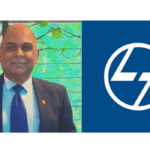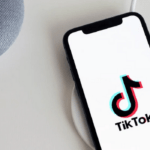Amidst all the complaints of the boundaries between work and personal life being blurred due to the pandemic-imposed remote working practices, a recent survey reports an increase in overall satisfaction with work–life balance! What is even more heartening to note is that Indian Gen Zs and Millennials seem to be more satisfied with their work–life balance today than they ever were before the pandemic, as compared to their global counterparts.
Even in terms of the impact that their organisations are having on the society, their DE&I efforts, and the measures taken by their employers for the health of the environment, both Gen Z and the Millennials today are slightly more satisfied today than they were in 2019.
Work-life balance: In 2019, only 27 per cent Indian Gen Zs were very satisfied with their current work–life balance in their current job. This figure has increased to 42 per cent in 2023. While only 37 per cent of Indian Millennials were happy with their work–life balance in 2019, the figure has touched 55 per cent in 2023.
Globally, 21 per cent Gen Zs and 18 per cent Millennials were very satisfied with their work–life balance in 2019. In 2023, the figures rose to 34 per cent and 31 per cent, respectively.
Societal impact: In terms of their employer’s or organisation’s societal impact, 28 per cent Indian Gen Zs and 34 per cent Indian millennials were satisfied in 2019. In 2023, however, this figure rose to 46 per cent and 49 per cent, respectively. Globally, in 2019, only 23 per cent Gen Zs and 17 per cent Millennials were very satisfied with their organisation’s societal impact. In 2023, post the pandemic, this percentage increased to 30 per cent for the global Gen Zs and 26 per cent for global Millennials.
DE&I initiatives: In terms of the efforts towards diversity, equity and inclusion, 23 per cent Indian Gen Zs and 33 per cent Indian Millennials were very satisfied with their organisation’s endeavours before the pandemic. In 2023, the figures have gone up to 49 per cent for Indian Gen Zs and 53 per cent for Indian Millennials. Globally, the figures were 24 per cent and 19 per cent, respectively for global Gen Zs and Global Millennials in 2019, and 33 per cent and 28 per cent in 2023.
Environment protection: Before the pandemic, in 2019, about 19 per cent Indian Gen Zs and 26 per cent Indian Millennials strongly believed that large companies were taking measures to protect the environment and that this was amongst the top three achievements of their employers or big organisations. However, in 2023, post the pandemic, the figure has gone up slightly with 29 per cent Gen Zs and 29 per cent Millennials in India strongly believing that large companies were adopting measures to save the environment.
What are Gen Zs & Millennials most concerned about?
For 32 per cent Indian Gen Zs, education, skills and training are the topmost concerns, followed by unemployment (31 per cent) and mental health of the generation (22 per cent). Climate change (21 per cent) and sexual harassment (20 per cent) rank fourth and fifth. For the Millennials in India, on the other hand, climate change is the topmost concern, with 26 per cent of them worried about it. Next concern is economic growth, with 25 per cent worried about it. Unemployment, cost of living and healthcare/ disease prevention follow in the third, fourth and fifth place at 22, 21 and 21 per cent, respectively.
At the global level, Gen Zs are most concerned about cost of living, with 35 per cent Gen Zs stating this as the topmost concern, followed by unemployment (22 per cent), climate change (21 per cent), mental health of their generation (19 per cent) and crime/personal safety (17 per cent).
Millennials, worldwide, seem to be more concerned than Gen Zs about the cost of living, with 42 per cent stating this as their topmost concern. Their second cause of concern is climate change, with 23 per cent worried about it. Unemployment, healthcare/disease prevention and crime and personal safety come in third, fourth and fifth, respectively with 20, 19 and 18 per cent global Millennials concerned about these. This survey by Deloitte covered 500 Gen Zs and 300 Millennials in India.
Value our content... contribute towards our growth. Even a small contribution a month would be of great help for us.
Since eight years, we have been serving the industry through daily news and stories. Our content is free for all and we plan to keep it that way.
Support HRKatha. Pay Here (All it takes is a minute)




































